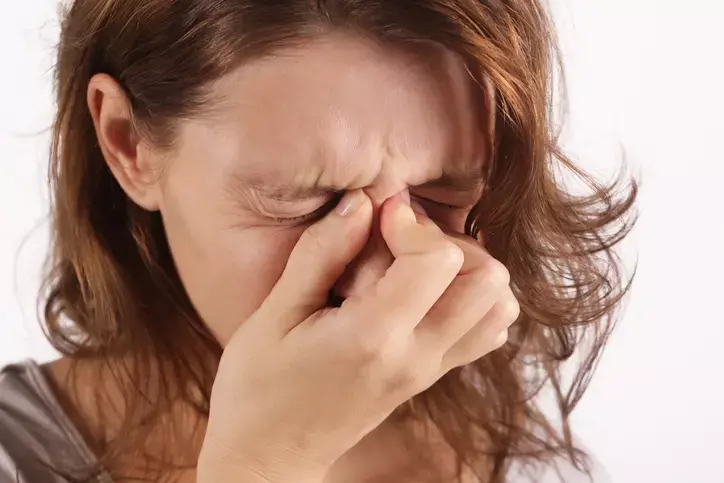- Home
- Medical news & Guidelines
- Anesthesiology
- Cardiology and CTVS
- Critical Care
- Dentistry
- Dermatology
- Diabetes and Endocrinology
- ENT
- Gastroenterology
- Medicine
- Nephrology
- Neurology
- Obstretics-Gynaecology
- Oncology
- Ophthalmology
- Orthopaedics
- Pediatrics-Neonatology
- Psychiatry
- Pulmonology
- Radiology
- Surgery
- Urology
- Laboratory Medicine
- Diet
- Nursing
- Paramedical
- Physiotherapy
- Health news
- Fact Check
- Bone Health Fact Check
- Brain Health Fact Check
- Cancer Related Fact Check
- Child Care Fact Check
- Dental and oral health fact check
- Diabetes and metabolic health fact check
- Diet and Nutrition Fact Check
- Eye and ENT Care Fact Check
- Fitness fact check
- Gut health fact check
- Heart health fact check
- Kidney health fact check
- Medical education fact check
- Men's health fact check
- Respiratory fact check
- Skin and hair care fact check
- Vaccine and Immunization fact check
- Women's health fact check
- AYUSH
- State News
- Andaman and Nicobar Islands
- Andhra Pradesh
- Arunachal Pradesh
- Assam
- Bihar
- Chandigarh
- Chattisgarh
- Dadra and Nagar Haveli
- Daman and Diu
- Delhi
- Goa
- Gujarat
- Haryana
- Himachal Pradesh
- Jammu & Kashmir
- Jharkhand
- Karnataka
- Kerala
- Ladakh
- Lakshadweep
- Madhya Pradesh
- Maharashtra
- Manipur
- Meghalaya
- Mizoram
- Nagaland
- Odisha
- Puducherry
- Punjab
- Rajasthan
- Sikkim
- Tamil Nadu
- Telangana
- Tripura
- Uttar Pradesh
- Uttrakhand
- West Bengal
- Medical Education
- Industry
Do Intranasal corticosteroids prevent loss of smell/ taste in Covid-19 mediated chronic rhinosinusitis?

Intranasal corticosteroids (INC) appeared protective against the loss in smell and/or taste reported during COVID-19 and did not exacerbate the clinical course of COVID-19 in participants with chronic rhinitis (CR), says an article published in Allergy and Asthma Proceedings.
The therapeutic effects of intranasal corticosteroids on nasal symptoms and the clinical course of coronavirus disease 2019 (COVID-19) in chronic rhinitis patients appear to be unknown. Can Tuzer and colleagues conducted this study to assess the therapeutic effects of INCs on nasal symptoms in participants with CR and COVID-19.
For this study quality of life and nasal symptoms were measured in participants with CR and diagnosed with COVID-19 at four tertiary centers using the 22-item Sino-Nasal Outcome Test (SNOT-22) and the visual analogue scale (VAS), respectively. Nasal symptoms were also measured on the total symptom score-6 (TSS-6) scale in participants with allergic rhinitis. After that, the participants were divided into two groups according to whether or not they used INCs when afflicted with the acute respiratory syndrome, sars syndrome coronavirus 2 (group 1 and group 2, respectively). The participants in Group 2 were separated into two categories based on whether or not they used antihistamines and/or leukotriene receptor antagonists (group 2a and group 2b, respectively). All three groups' scores were compared before and throughout COVID-19.
The key findings of this study were as follow:
1. A total of 71 patients were enrolled (21 in group 1, 24 in group 2a, and 26 in group 2b).
2. When compared to the preCOVID-19 values, the overall SNOT-22 scores grew dramatically in all groups during the infection (p 0.001 in each group).
3. The difference between preCOVID-19 and COVID-19 values, on the other hand, demonstrated a lesser decline in the perceptions of smell and/or taste in group 1 than in groups 2a and 2b (p = 0.015, adjusted p = 0.045; and p = 0.001, adjusted p = 0.002, respectively).
4. Other COVID-19 results, VAS, and TSS-6 ratings did not change significantly across groups (all p > 0.05).
In conclusion, the researchers found that patients with CR who also have COVID-19 can take INCs to successfully avoid decreased taste and/or smell, with no negative influence on COVID-19 clinical outcomes or severity.
Reference:
Tuzer, C., Karadag, P., Yegit, O., Eyice, D., Oztop, N., Can, A., Demir, S., Coskun, R., Erdogdu Unal, D., Olgac, M., Buyukozturk, S., Colakoglu, B., & Gelincik, A. (2022). Clinical effects of intranasal corticosteroids on nasal symptoms in subjects with chronic rhinitis during COVID-19. In Allergy and Asthma Proceedings (Vol. 43, Issue 2, pp. 106–115). Oceanside Publications Inc. https://doi.org/10.2500/aap.2022.43.210116
Medical Dialogues consists of a team of passionate medical/scientific writers, led by doctors and healthcare researchers. Our team efforts to bring you updated and timely news about the important happenings of the medical and healthcare sector. Our editorial team can be reached at editorial@medicaldialogues.in.
Dr Kamal Kant Kohli-MBBS, DTCD- a chest specialist with more than 30 years of practice and a flair for writing clinical articles, Dr Kamal Kant Kohli joined Medical Dialogues as a Chief Editor of Medical News. Besides writing articles, as an editor, he proofreads and verifies all the medical content published on Medical Dialogues including those coming from journals, studies,medical conferences,guidelines etc. Email: drkohli@medicaldialogues.in. Contact no. 011-43720751


